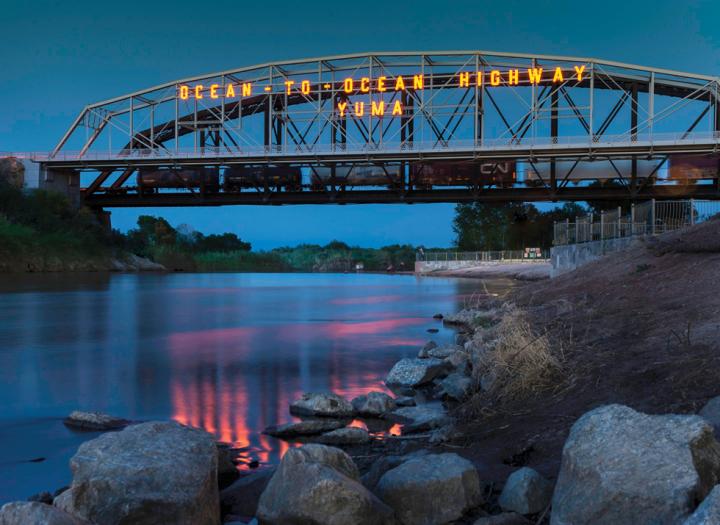to make a big noisy fuss when some historic building or landmark is threatened by huge, moneymaking enterprises, including government, or is everyone content to let historic landmarks and wonderful architecture in the area slip quietly into oblivion?
In Yuma, AZ the city government is the only entity showing much concern about history.
The only reason Yuma exists is that it is the best place to cross the Colorado river. There were several ferries, and each ferries anchored a little town. The river flooded a lot, so towns got wiped out a lot. After each flood, a ferry would start in a convenient place, and a new town would spring up there.
The first permanent commercial structure in Yuma was a whor-- excuse me, a cat house. It stood on a hill where it was prominently visible from all possible ferries and safe from flooding. The mother superior was so highly respected that when she died she was buried with full military honors. https://en.wikipedia.org/wiki/Sarah_A._Bowman The place was still standing when I was a kid, but nobody ever talked about it. It was just like you see in movies: all wood, terrifically ornamented, two stories with a balcony over a wood sidewalk. The rooms were rather small. The lobby was about the size of a small kitchen, roughly one fourth of what it looks like at the link. An entrance to a park stands there now.
So when a bridge was built here, it was a big deal. It was called "The Bridge Between The Oceans".
The bridge sent all traffic crossways to the existing Main Street. Main Street was only four blocks long, from the river to a small mountain. It was somewhat difficult to get to from the rest of the town, so as the town grew, new business areas were developed and Main Street fell into disrepair. The death of Main Street came when a new bridge was built a half mile from the old one. So the city fathers did what government officials are so famous for: they got stupid. Back when a buck was still silver they spent $180,000 beautifying the aging downtown district. They ignored the crumbling brickwork, whole blocks of abandoned structures. As time dragged on, businesses signed their deeds over to the city because the properties were no longer worth the taxes. Now the city has turned the area into a sort of museum of the glory that was Yuma. If you want to call it glory.
What has saved the town is Canadians. In winter the town is flooded with Canadian tourists getting away from snow. In spring they all go away and the town is back to its normal sleepy patterns. Winter population is almost double the summer population.
So the only visible concern about heritage is the parks, which are recent.